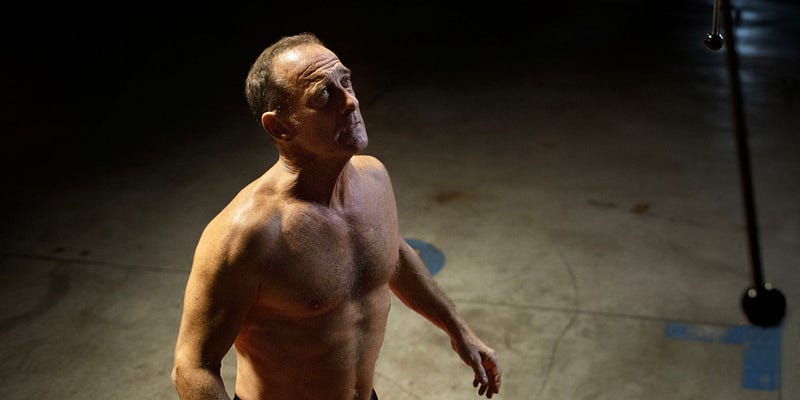
Titane
’s
plot. Photo courtesy of Cineville.
*Content warning: this review describes graphic imagery and mentions of body horror.*
French film director Julia Ducournau’s newest film,
Titane
, has been highly praised by both critics and audiences alike since its premiere at the Cannes Film Festival earlier this year, where it won the highest award, the Palme d’Or. Twitter and Letterboxd are filled with reviews of the film, which all talk about how shocking and unforgettable it is. Indeed,
Titane
is a strange and visceral tale, but it uses its strangeness to its advantage; the twists and impossibilities that happen in the film take audiences on a ride of a lifetime.
Titane
is the story of Alexia, a dancer with a titanium plate lodged in her head who lives with her negligent parents. This is quite possibly the easiest element to explain in the film, as
Titane
quickly descends into chaos once Alexia is introduced. In the first thiry minutes, the film reveals that Alexia is a serial murderer, that she has an unusual attraction to metallic objects and that she has sex with a car (yes, you read that right). But none of this is included in the film for mere shock value. In fact, the absurd events in Alexia’s journey allows Ducournau to show the ways in which bodies can transform and create unexpected bonds.

Titane
, attempts to come to terms with the limits of his body. Photo courtesy of Full Circle Cinema.
Every moment in
Titane
is motivated by bodies, from the ways they move to the ways in which they can change. The film introduces Alexia seductively dancing on top of the car she later has sex with. When Alexia is on the run from the police, she takes drastic measures to transform herself by changing parts of her body, like cutting her hair and breaking her nose. She then presents herself as Adrien Legrand, missing son of Vincent Legrand, a firefighter chief who searched for his son for ten years. Alexia’s transformation leads Vincent to abruptly adopt her into his fire station, and both of them eventually find themselves in an awkward, yet loving, familial relationship. Ducournau continually uses dance scenes that highlight Alexia and Vincent’s bodies to reflect their level of trust with each other. Even when Alexia’s body eventually grows strangely pregnant from the car, Vincent does not run in fear, and instead becomes a kinder father figure towards her. Ducournau intends to show the film’s audiences just how much bodies can do, and it almost feels wondrous to see how many different things a body is capable of.
Though many have called
Titane
a body-horror film, specifically citing that most of the horror comes from Alexia growing pregnant with a car-child, Ducournau treats the pregnancy as something that attracts more love than fear. There is still motor oil instead of blood, metal instead of skin, but Alexia nevertheless grows closer to Vincent through the pregnancy. When she initially attempts to hide her growing belly, he asks no questions and simply allows herself to feel comfortable in her own skin, which leads her to tentatively trust him with the truth of her body. Vincent thus turns into the thoughtful and considerate parent that she never had, and, near the end of
Titane
, swears to take care of her child. Despite the pregnancy appearing like a violent sci-fi nightmare, it still manages to build a family with tender dynamics. The car-child is not abandoned, Alexia receives the parental attention she always wanted and Vincent finally re-experiences fatherhood by adopting Alexia. Amidst all the horror, there is still familial intimacy.
That being said,
Titane
is definitely not for the lighthearted. It is unapologetically violent, throws twist after twist in its narrative, and requires its audience to deeply reflect upon the ideas it presents to them. Knowing this, it is not surprising that Ducournau managed to win the hearts of many with
Titane
, as she crafted a film that includes plenty of entertainment and nuanced themes.
Titane is now playing in select theatres everywhere.

















